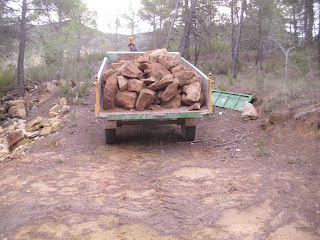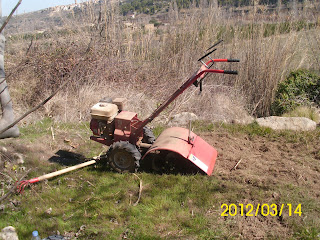I only usually write a diary when I’m travelling, but if I did write one when in England this might be an entry.
8th February 2013. Left Stow at about 10.30am to pick up the Oxford bus in Chipping Norton. Still enjoying driving the mini. It’s a bit like sitting in a go-kart. Bus driver was really friendly with everyone. That’s nice.
Entered the flat at about midday. Always nice to be back though it was chilly and empty. All well. Fired up the computer and had a look at what’s on through the Daily Information web page: piano concert at Harris Manchester College at 1.30pm and a play on Marx in Soho at the Burton Taylor theatre at 9.30pm. So, with the Writers in Oxford meeting at 7.30pm, that was my day mapped out.
 Beans on toast for lunch. Mmm. Then off on the bike to Harris Manchester. The recital was in the chapel. It’s a plain building, but graced with colourful stained glass windows by William Morris and Edward Burne-Jones (both Oxford boys). The place was virtually empty – twelve people at most – and the show was free!
Beans on toast for lunch. Mmm. Then off on the bike to Harris Manchester. The recital was in the chapel. It’s a plain building, but graced with colourful stained glass windows by William Morris and Edward Burne-Jones (both Oxford boys). The place was virtually empty – twelve people at most – and the show was free!
A nice looking couple were introduced. They bowed gracefully then approached the gleaming grand piano. She was slim, tall and blonde with hair stretched back into a tight bun. She wore a thin cerise jumper over a small black dress. He wore a smart grey suit and sported serious glasses topped by a crew cut.
They played together: a four handed performance. How fascinating, how graceful, how intimate. First came a complicated piece by Mozart, then - changing places - a typically ethereal piece from Debussy. They finished with a romp based on a children’s’ game. Lovely.
Afterwards I explored the college. I rarely go there as a guide and, though it’s not old, it is impressive. I passed the college tandem (yes) and the dining hall to make a discovery. The college owns a long stretch of houses in Hollywell Street and one of them has a blue plaque on its back wall stating that Bishop Berkeley was ‘perceived to have lived there’. Berkeley was the 18th century philosopher who stated that the material world was created by perception. I was born in the town of Berkeley and there is a connection, I perceive.
After that a short cycle ride to the Museum of History or Science which is running an exhibition on meteorology at present. Mildly interesting. I asked the bored attendant what the illuminated blue balloon with Dell Computers written on it was supposed to represent. Apparently, it should have contained some sort of animation portraying super computing for weather forecasting - but it had broken down!
Next off to Tesco to stock up on ready meals, bananas and biscuits. I was amused to see Mark, an ex railwayman and characterful regular at my local pub behind the till. Had a light chat with him, and then home again.
Most of the afternoon spent writing away at my current novel. It’s a sci-fi, futuristic book tracing the lives of three distinct groups of people: the dispossessed, the departed and the disembodied. Just now I am writing about the departed (I write a short chapter on each civilisation in order, it’s like a long collection of connected short stories) and have managed to get Tali, my youngest character, out of a bad place. Can’t wait to know what happens next. I’m really enjoying it.
Whilst I write my laptop is perched on a high wooden flower stand. I write standing up, overlooking the passing traffic and pedestrians of the busy Woodstock Road. In the background my radio is tuned to a station called Magic which plays music almost uninterrupted by DJ’s and adverts. Best song that afternoon was Jar of Hearts by Christina Perri.
An unremarkable chicken, bacon and leek pie from Tesco for dinner, then walked off to the King’s Head pub for a Writers in Oxford meeting on publishing. It was quite stimulating, apart that is from an irrelevant talk on formulaic marketing from a Brookes academic (the four Ps and all that). One speaker gave a very good outline of the publishing world today and how it had changed out of all recognition in the last four years: the main influences being the Web, the eBook and self-publishing. He concluded by saying that content today has be shaped by the customer, at which I balked. Seems a recipe for suppressing innovation and imagination to me. Was appalled to see that most writers at the meeting were not drinking, not at all. No wonder they can’t get published.
Then a dash around to the Burton Taylor theatre for the short play on Marx. They wouldn’t let me in! They claimed that all of the seats had been sold, but I knew that they were simply discriminating against bearded men, or older men, or writers or something. Waited for returns but no luck so walked around to the Far from the Madding Crowd pub to spend the fiver it would have cost me to see the play.
Met Mark again in the pub. That’s Mark, not Marx. He’s the man from the supermarket and I find him a very interesting fellow. I think we covered capitalism, communism, the closure of the railways, the overblown sexuality of some men, children, protest movements, and who knows what else. All that discussed over three excellent pints of real ale. And so to bed.

















